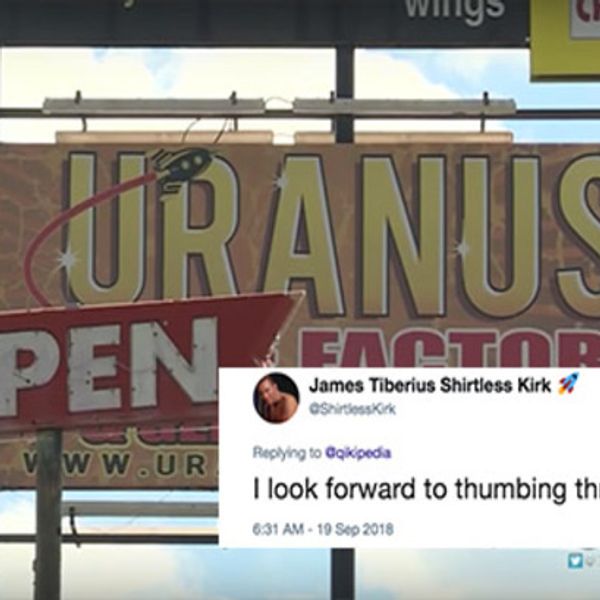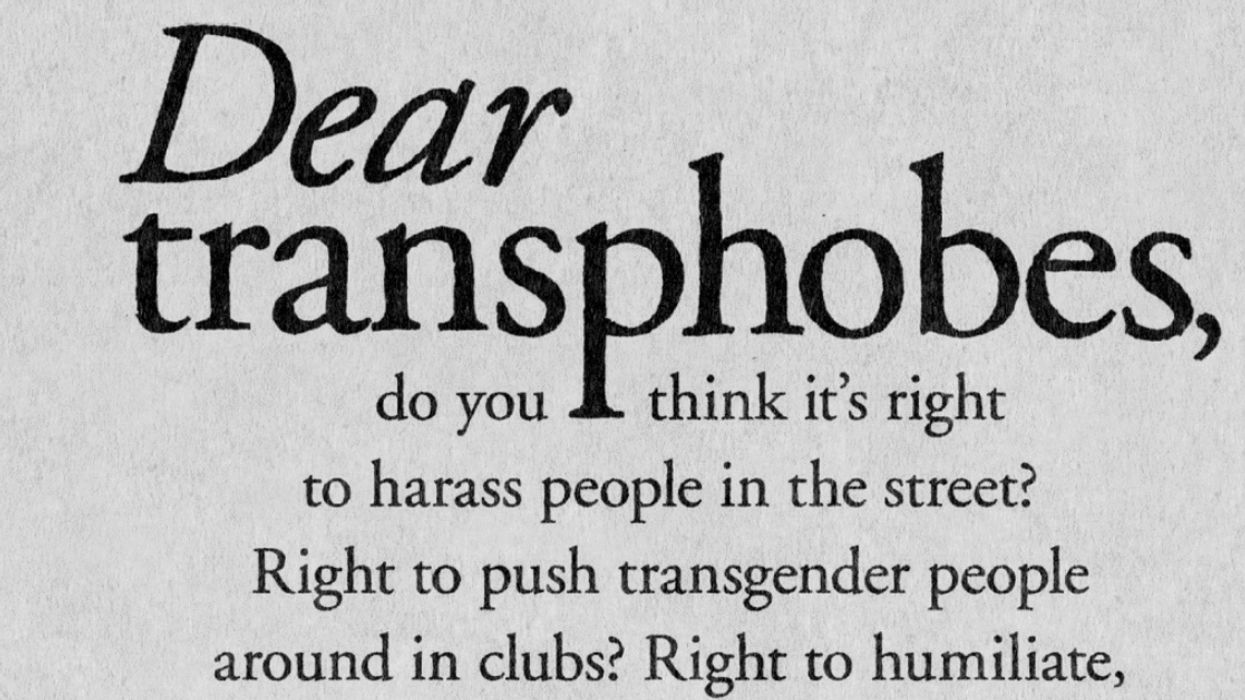August, 2004, LOS ANGELES - I have been privileged in my life to work with many groundbreakers, real pioneers in television, who have become legends. This month, I participated in three major conventions that celebrated three of these noteworthy individuals.
The first of these was a rarely produced convention built around the classic television series created by Rod Serling, "The Twilight Zone." This event was, for me, a tribute to the genius of a master storyteller and dramatist.
Serling was a writer whose work I first saw on the distinguished live television series "Playhouse 90" when I was a teenager. His dialogue was tough yet sensitive; real and yet poetic. His characters were strong, determined but flawed people. I was particularly impressed by his drama "Requiem for a Heavyweight" that starred Jack Palance. Serling won three Emmys for his writing among his many other awards. He saw television as more than a theater of personal human dramas but as a powerful medium for addressing issues of the times as well. Like other iconoclasts in television, however, he met resistance from the networks. Frustrated by the battles he had to fight, he came up with a creative solution. He would slip his controversial issues under the network radar, disguised as fantasy or science fiction. He created a new series titled "The Twilight Zone," and thus made television history.
 A year before I worked on the "Star Trek" pilot, I was cast in an episode of "The Twilight Zone" titled "The Encounter." It was a red meat acting role in a two-character drama with that fine actor, Neville Brand. Working on that episode was a tremendously fulfilling experience. As a fan of the creator of the show, I got an unexpected treat. That special bonus was the opportunity of meeting the man whom I had so admired as a youngster, Rod Serling. As the host of the series, he welcomed the audience at the opening and then the close of each episode in his deep, sonorous voice. He filmed these pieces in batches of about half a dozen, all in a few hours. Thus, actors working on the series did not necessarily get to meet Serling. So, it was a special thrill for me to watch him film his intros and closes, then to chat with him when he was finished. His voice was as resonant in life as in film and he was as warm and gracious as I had imagined him to be. All these memories from forty years ago came flooding back to me at "The Twilight Zone" convention.
A year before I worked on the "Star Trek" pilot, I was cast in an episode of "The Twilight Zone" titled "The Encounter." It was a red meat acting role in a two-character drama with that fine actor, Neville Brand. Working on that episode was a tremendously fulfilling experience. As a fan of the creator of the show, I got an unexpected treat. That special bonus was the opportunity of meeting the man whom I had so admired as a youngster, Rod Serling. As the host of the series, he welcomed the audience at the opening and then the close of each episode in his deep, sonorous voice. He filmed these pieces in batches of about half a dozen, all in a few hours. Thus, actors working on the series did not necessarily get to meet Serling. So, it was a special thrill for me to watch him film his intros and closes, then to chat with him when he was finished. His voice was as resonant in life as in film and he was as warm and gracious as I had imagined him to be. All these memories from forty years ago came flooding back to me at "The Twilight Zone" convention.
What a trip down the proverbial "memory lane" the convention was. So many of the actors who had worked on the series were there. Shelley Berman, Theodore Bikel, Terry Becker, with whom I had worked on "Voyage to the Bottom of the Sea," H.M. Wynant, who had also impressed me on so many "Playhouse 90" dramas, Lloyd Bochner, who I liked on the series "Hong Kong," Paul Comi, who played my cohort navigator on a first season episode of "Star Trek," France Nuyen, who played the Elaan of Troyus on an episode of "Star Trek" and so many others, were all there. The convention was one that brought back so many fond memories - and the most prominent presence there was the spirit of that venturesome and imaginative television pioneer, Rod Serling.
Then, I flew to Toronto, Canada, for a gigantic convention that combined four genres, sci-fi, anime, comics, and horror movies. It attracted over 25,000 fans. Any convention that might have any part of it dedicated to science fiction, by definition, would be paying tribute to Gene Roddenberry, the creator of "Star Trek" and another visionary iconoclast of television. His contribution to television legend would be well represented. Patrick Stewart and I were the "Star Trek" guests. On arrival in Toronto, I was alarmed to learn that Patrick could not make it due to an angioplasty procedure that had to be performed on him. I was assured that he was making good, steady recovery. In his place, Michael Dorn and Levar Burton of "The Next Generation" stepped in to fill the breach. The convention was an enormous success. The organizers told me this was the biggest gathering of its kind in Canada and I certainly believed them. It was huge.
 This popular convention had, for me, however, a different complication. I was contracted to do this August convention in Toronto many months before and I was also to be doing a very special convention - my dear friend, Jimmy Doohan's final public appearance - in June back in Hollywood. But when it was learned that Jimmy would, at long last, be receiving his star on the Hollywood Walk of Fame in August, the date of his convention was suddenly changed to the very same weekend that I was scheduled to do this Toronto convention. I had a contract and now a dilemma. I couldn't be in two places in two countries on the same weekend. Thanks to my business manager's good negotiating skills, I was released from the last day of the Toronto convention so that I could fly back to Hollywood to do the "Beam me up Scotty... One Last Time" convention. I flew in the dark of early Sunday morning on the "red eye" flight back to Los Angeles for the final day of Jimmy's last convention. It was a rough journey but it was for a beloved friend.
This popular convention had, for me, however, a different complication. I was contracted to do this August convention in Toronto many months before and I was also to be doing a very special convention - my dear friend, Jimmy Doohan's final public appearance - in June back in Hollywood. But when it was learned that Jimmy would, at long last, be receiving his star on the Hollywood Walk of Fame in August, the date of his convention was suddenly changed to the very same weekend that I was scheduled to do this Toronto convention. I had a contract and now a dilemma. I couldn't be in two places in two countries on the same weekend. Thanks to my business manager's good negotiating skills, I was released from the last day of the Toronto convention so that I could fly back to Hollywood to do the "Beam me up Scotty... One Last Time" convention. I flew in the dark of early Sunday morning on the "red eye" flight back to Los Angeles for the final day of Jimmy's last convention. It was a rough journey but it was for a beloved friend.
 This convention was the most personal, the most heartfelt, and more than a little bitter sweet. Jimmy had been diagnosed with early Alzheimer's, Parkinson's, and other diseases. I had lost my mother to Alzheimer's just two years before. I know from experience what challenges lie ahead.
This convention was the most personal, the most heartfelt, and more than a little bitter sweet. Jimmy had been diagnosed with early Alzheimer's, Parkinson's, and other diseases. I had lost my mother to Alzheimer's just two years before. I know from experience what challenges lie ahead.
But Jimmy was in fine spirits at the convention. He was rolled out to me in his wheel chair. He looked wonderful. His eyes sparkled with joy and his smile was radiant. When I bent over to him and said, "It's great to see you Jimmy," he repeated in a whispery voice, "It's great to see you, George." His hand had lost his familiar firm grip but he held on to mine and wouldn't let go. I love this man, this old pal, this guy I used to call my favorite drinking buddy. I introduced him to sushi way back when and he had become an enthusiastic sushi connoisseur.
 We had shared so much of our lives together - working on "Star Trek," doing conventions together throughout the world, even going into business together selling cosmetics. And, he is a first rate professional. When it came time to pose for photos with the cast, he was there smiling throughout. I suspected he was tired, but he has the resilience of a "black Irishman." Yes, he is Irish - although he has drunk enough Scotch to be able to claim a lot of Scotch in him. All the activity and excitement must have been exhausting for him, but he sparkled the whole time.
We had shared so much of our lives together - working on "Star Trek," doing conventions together throughout the world, even going into business together selling cosmetics. And, he is a first rate professional. When it came time to pose for photos with the cast, he was there smiling throughout. I suspected he was tired, but he has the resilience of a "black Irishman." Yes, he is Irish - although he has drunk enough Scotch to be able to claim a lot of Scotch in him. All the activity and excitement must have been exhausting for him, but he sparkled the whole time.
The unveiling of the James Doohan star on the Hollywood Walk of Fame was two days later on a Tuesday. So many of Jimmy's family, friends, colleagues, and fans were gathered on the sidewalk in front of the Hollywood Entertainment Museum. Jimmy's wife, Wende, stood beside him carrying their little four-year-old, Sara, and his children and his many grandchildren were scattered throughout the crowd.
 From the cast, Walter Koenig, Nichelle Nichols, Grace Lee Whitney, and I with guest stars Barbra Luna and France Nuyen were there to celebrate this happy day and tribute to Jimmy's career achievement. The bank of photographers and news cameramen punctuated the occasion with calls of "look this way," "now this way please," and "one more this way." The Mayor of Hollywood, Johnny Grant, began the ceremony with his usual flourish. In my congratulatory talk, I said, "This is a galactic day in this town filled with a galaxy of stars. We've gathered from throughout this planet to congratulate you Jimmy, and say to you, we love you. We thank you for your luminous talent. We thank you for the gift of an unforgettable character, that ingenious and beloved engineer who could fix anything. We thank you for who you are and we love you." Jimmy beamed as he clutched the small replica of his star and waved to the gathered fans and press. Jimmy was truly transported. This will be a day I will cherish in my memory.
From the cast, Walter Koenig, Nichelle Nichols, Grace Lee Whitney, and I with guest stars Barbra Luna and France Nuyen were there to celebrate this happy day and tribute to Jimmy's career achievement. The bank of photographers and news cameramen punctuated the occasion with calls of "look this way," "now this way please," and "one more this way." The Mayor of Hollywood, Johnny Grant, began the ceremony with his usual flourish. In my congratulatory talk, I said, "This is a galactic day in this town filled with a galaxy of stars. We've gathered from throughout this planet to congratulate you Jimmy, and say to you, we love you. We thank you for your luminous talent. We thank you for the gift of an unforgettable character, that ingenious and beloved engineer who could fix anything. We thank you for who you are and we love you." Jimmy beamed as he clutched the small replica of his star and waved to the gathered fans and press. Jimmy was truly transported. This will be a day I will cherish in my memory.
Scotland Tackles Transphobia and Homophobia In Brilliant New Billboard Ads ❤️
The Scottish government has had enough of hate crimes and is moving forward with a gutsy campaign.
According to Pink News, Scotland is launching a new initiative to combat intolerance with messages respectively addressing "bigots," "disablists," "homophobes," "racists," and "transphobes" in a series of ads circulating across the country.
Each message is signed on behalf of Scotland.
The campaign is part of the Scottish government's One Scotland project in an effort to reduce hate crime.
One letter reads:
"Dear transphobes, do you think it's right to harass people in the street? Right to push transgender people around in clubs? Right to humiliate, intimidate and threaten them online? Well we don't."
"That's why if we see you doing harm, we're reporting you. We believe people should be allowed to be themselves. Except if they're spreading hate."
"Yours, Scotland."
In another letter, the country says it has a "phobia" of homophobic behavior.
"If you torment people because of who they love, shout word that we are not going to write, or use violence because you don't like who someone is holding hands with, you should be worried."
"If we see or hear your abuse, we're calling the police. That's because love lives in this country, not hate."
"Yours, Scotland."
One Scotland's website describes the organization as one that aims to continue building an inclusive society while recognizing the significant strides made so far towards equality.
"One Scotland embodies the inclusive society we want in Scotland, where equality and human rights are respected and every individual and minority group feels valued."
The website defines hate crimes as abuse that "can be verbal or physical and has hugely damaging effects on the victims, their families and communities, and we all must play our part to challenge it."
"Police Scotland takes hate crime very seriously. In the last year there were over 5,300 charges of hate crime reported to the Procurator Fiscal in Scotland1."
"However, there are many more incidents that go unreported. We all have a responsibility to report hate crime if we witness it – it's the only way we can challenge it, and put an end to it for good."
Justice minister Humza Yousaf is familiar with being a victim of a bigotry and is encouraging people to call out and report any incidents involving harassment.
"As somebody who has faced Islamaphobic and racial abuse over the years, I know how upsetting being a victim of hate can be. Hate crime and prejudice are completely unacceptable and we are absolutely committed to tackling it."
"We all have a role to play in stamping out prejudice and I would ask anyone who witnesses a hate crime to play their part and report it. Justice agencies such the police and Crown Office will deal sensitively with reports made and people should have confidence in how they will be treated. Last year there were over 5,300 charges of hate crime reported to the Procurator Fiscal in Scotland but there are still many incidents that are going unreported."
Henrietta Mochrie identifies as transgender and has been the victim of repeated harassment and abuse. She emphasized the importance of speaking out against the hatred.
"I'll often get street harassment, sometimes this has escalated to the point where I've been followed by people shouting abuse at me, just because of who I am."
"It makes me feel really down and scared to leave the house. It's important that if you witness hate crime that you report it to take a stand against hate."
One Scotland's ad campaign officially launched on Wednesday.
Hopefully, it won't take too long before other nations follow suit in this bold, yet necessary fight for equality.
H/T - OneScotland, PinkNews, Twitter
Feminists Slam Man Telling Them They Can't Have Both Chivalry And Equality
A man on Twitter informed feminists they had to choose between chivalry and equality.
He was promptly raked over the coals for even assuming an antiquated concept would be considered as a viable option.
Twitter user @Rich_Cooper stated:
"Dear feminists. You either get equality or chivalry. You can't have both."
One user responded:
"I'll take equality. I don't need special treatment."
Cooper's rhetorical question did not go over so well. Both women and men expressed their disdain for his message.
One male user observed that chivalry was irrelevant and treating everyone with kindness and respect was compulsory.
"What people care about is caring, empathic [sic], considerate, thoughtful people, NOT whether THEIR door is held for them or THEIR meal is paid for them."
"Are there gender stereotypes in het[erosexual] dating? Sure. But that's separate from being a warm, giving, caring, grounded person."
Some women got right down to the point.
The notion of chivalry and equality are mutually exclusive and not a lot of people thought it was a major priority for feminists.
Common courtesy is not chivalry.
This user pointed out the fact that chivalry stems from a history of men outdoing other men. The concept had very little to do with women.
"Chivalry is a medieval concept of men dressing to impress other men. It has little to do with equality."
"Some men were on top, other men were beneath them. Historically, women were rarely invited into the process."
Neil Bradley described the outdated concept of chivalry as one that implies men being superior to women in a September 8, 2017, article for Medium publications.
"Examples: opening the door for a woman, paying for a woman's meal, gesturing for a woman to go first. The justification is either that women are not physically as strong (to open the door), able to provide (pay for their own meal), or are more deserving of compassion than men (allowing women to go first)."
Bradley also added that he wants to treat others the way he wants to be treated and asked if that approach should be motivated by chivalry or equality.
"If the genders are to be considered equal and treated equally, how a man treats a woman will essentially be the same as how a man treats a man."
"The obligation to open the door, pay for the meal, and let women go first vanishes. Men do not do this to other men, therefore why do it for women?"
His final take was that the two concepts can't co-exist. Either one is chivalrous or treats everyone as equals.
At the end of the day, people were happy to show chivalry the door.
H/T - GettyImages, Twitter, Indy100, Medium
Katy Perry, P!nk, Paul McCartney And More Sign Letter Threatening To Boycott SiriusXM Radio
Hundreds of artists have signed a letter threatening a boycott if SiriusXM's parent company, Liberty Media, doesn't back down from opposing the Music Modernization Act.
The act, which was expected to pass through Congress, streamlines royalty payments in the new age of digital technology, but it seems SiriusXM is objecting to a small section that would have the satellite radio company paying royalties on recordings dating before 1972.
That's a whole lot of songs and a whole lot of money the company is hoping to skip out on paying, but not if stars like Paul McCartney, P!nk, Stevie Nicks, Sia, Carly Simon, Gloria Estefan, Mick Fleetwood, Don Henley, Max Martin, and Katy Perry can help it.
The letter read, in part:
I'm writing you with grave concern about SiriusXM's opposition to the Music Modernization Act (Classics Act included).
We are all aware of your company's objections and trepidation but let me say that this is an opportunity for SiriusXM to take a leadership position. As you are aware, 415 Representatives and 76 Senators have already cosponsored the MMA along with industry consensus. It's SiriusXM vs all of us. We can either fight to the bitter end or celebrate this victory together. Rather than watch bad press and ill will pile up against SiriusXM, why not come out supporting the most consequential music legislation in 109 years? We do not want to fight and boycott your company but we will as we have other opponents. Stand with us! Be brave and take credit for being the heroes who helped the MMA become historic law! Momentum is building against SiriusXM and you still have an opportunity to come out on the right side of history. We look forward to your endorsement but the fire is burning and only you can put this out.
SiriusXM resoponded with a letter of their own:
Over the past several weeks, we have been the subject of some stinging attacks from the music community and artists regarding our views on the Music Modernization Act. Contrary to new reports and letters, this is really not about a SiriusXM victory, but implementing some simple, reasonable and straightforward amendments to MMA. There is nothing in our "asks" that gut the MMA or kills the Act. So let's talk about the substance of the amendments we propose, because we truly do not understand the objections or why these concepts have incited such a holy war.ontrary to the accusations, SiriusXM has proposed three simple amendments to the MMA.
First, SiriusXM has asked that the CLASSICS Act recognize that it has already licensed all of the pre-1972 works it uses. This amendment would ensure that artists – the people who are supposed to be at the heart of the MMA – receive 50% of the monies under those existing licenses. Is that unfair? Just today, Neil Diamond wrote in the LA Times that: "I receive a small amount of songwriting royalties, but no royalties as the recording artist." How can that happen? To date, SiriusXM has paid nearly $250 million dollars in pre-'72 royalties to the record labels. We want to make sure that a fair share of the monies we have paid, and will pay, under these licenses gets to performers. Without this provision, artists may never see any of the money SiriusXM paid, and will pay, for the use of pre-1972 works. Artists not getting paid hurts our business!
Second, Sirius XM thinks that the fair standard to use in rate setting proceedings is the standard that Congress chose in 1995 and confirmed again in 1998 – which is called the 801(b) standard. However, we are willing to move the "willing buyer/willing seller" standard contained in the MMA. In exchange, we have asked for the same concession that the MMA grants to other digital music services, but we were left out of — simply that the rates that were set last year for five years now apply for ten years. We thought this was a fair compromise when we read the "new" MMA that was released this weekend by the Senate, and are willing to live by that compromise.
Third, SiriusXM is asking the simple question: "Why are we changing the rate court evidence standard for musical compositions in this legislation so that it gives another advantage to broadcasters over satellite radio and streaming services?" There is no policy rationale for this change to tilt the playing field further in their favor, and frankly no one has been able to explain it to us. It is only fair that we debate why the change to Section 114(i) is in the MMA.
Did you all catch that? It sounds like lawyer speak for "we don't really want to say where we stand."
It seems all the letters were for naught. The Music Modernization Act passed in the U.S. Senate.
It was time to celebrate and dance in the streets.
As the saying goes, honest pay for honest work.
Woman Was Fired For Refusing To Wear A Bra At Work—And Now She's Suing
Christina Schell, from Alberta, Canada, stopped wearing bras three years ago citing health reasons.
While Schell did not specify the health reasons, she did state she finds them to be "horrible."
But after her refusal to sign or adhere to a new enforced dress code policy to wear a bra or tank top under her work shirt at a golf course grill where she worked, Schell was promptly fired.
Now, the 25-year-old has filed a human rights violation against the Osoyoos Golf Club, Osoyoos, in British Columbia, Canada.
Schell said:
"I don't think any other human being should be able to dictate another person's undergarments."
When she asked the general manager, Doug Robb, why she had to comply, the manager told her the mandate was for her protection.
Robb allegedly said:
"I know what happens in golf clubs when alcohol's involved."
After losing her job, she brought the case to the British Columbia Human Rights Tribunal and told them the club's dress code was discriminatory because the rule didn't apply towards male employees.
Schell told CBC:
"It's gender-based and that's why it's a human rights issue. I have nipples and so do the men."
David Brown, an employment lawyer in Kelowna, BC, said gender-specific dress codes could be viewed as discriminatory under the BC Human Rights Code.
He stated:
"It's an interesting question as to whether or not an employer can dictate the underwear that women can wear, but they don't say anything about the underwear that men can wear, and does that create an adverse impact on the individual?"
Brown added:
"If this policy is found to be discrimination, the next question is does the employer have a bonafide occupational requirement to essentially impose this on the individual?"
"I'm kind of scratching my head as to what that occupational requirement would be."
As for the tank top option, due to working under oftentimes extreme heat serving tables outsides, Schell did not want to wear another layer of clothes just because of her gender.
Schell said:
"It was absurd. Why do you get to dictate what's underneath my clothes?"
Employment lawyer Nadia Zaman told CBC that the club can enforce a gender-specific policy as they deem necessary as long as the establishment can prove it is for the occupational safety of its workers.
But the attorney questioned if forcing female employees to wear a bra was applicable in this case.
Zaman stated:
"If they simply require that female employees wear a bra but then they don't have a similar requirement for males, and they can't really justify that … then there is a risk that their policy's going to be deemed to be discriminatory."
Under British Columbia's discrimination law, it is illegal for employers:
'to discriminate against any individual because of his race, color, religion, sex, or national origin'.
McDonald's employee Kate Gosek, 19, agrees with Schell in that the dress code is "unnecessary." She too was harassed by her employers at a McDonald's in Selkirk, Manitoba, over refusing to wear a bra.
"She just told me that I should put on a bra because, McDonald's—we are a polite restaurant and no one needs to see that."
Schell's case sparked plenty of debates on Twitter.
Schell is not alone in her disdain for bras.
Schell is still waiting to hear from the Human Rights Commission about her claim.
H/T - GettyImages, Twitter, Indy100, CBC













 (
( (
(




